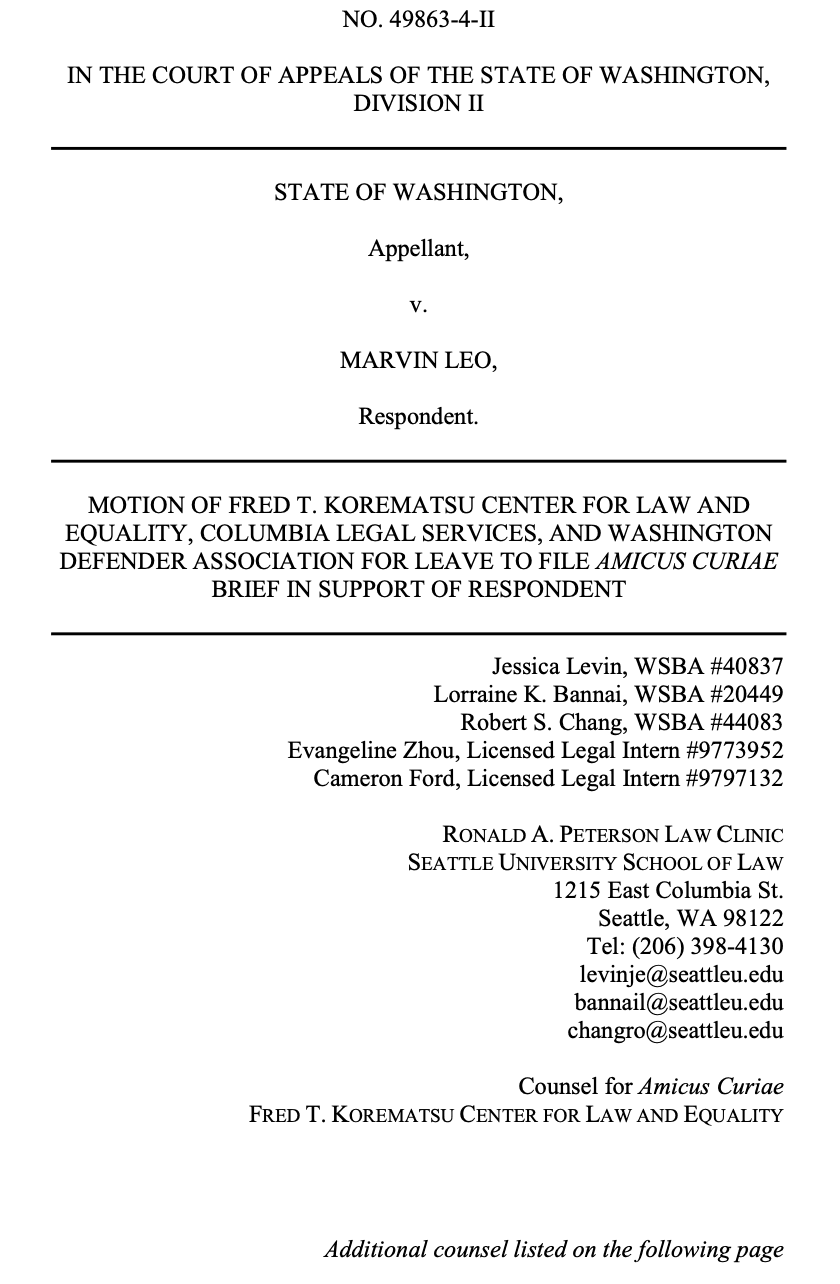
Summary of Argument
In State v. Bassett, this Court advanced article I, section 14 jurisprudence by adopting a categorical bar analysis to determine that this state’s robust protection against cruel punishment led to but one conclusion: juvenile life without parole is never constitutional. 198 Wn. App. 714, 394 P.3d 430 (2017), review granted, 189 Wn.2d 1008 (2017). Because the Washington Supreme Court requires Washington courts to treat de facto juvenile life without parole sentences as they do actual life without parole sentences, State v. Ramos, 187 Wn.2d 420, 438–39, 387 P.3d 650 (2017), it follows both naturally and necessarily that de facto life without parole is also categorically barred.
Even if this Court declines to apply the categorical bar analysis to de facto life without parole, article I, section 14 is more protective than the Eighth Amendment in the juvenile sentencing context and mandates concurrent sentencing in Mr. Leo’s case. Under the Eighth Amendment, life without the possibility of parole for a juvenile offender is constitutional only in the “rarest” of cases. Montgomery v. Louisiana, 577 U.S. __, 136 S. Ct. 718, 726, 193 L. Ed. 2d 599 (2016). Thus, if the heightened protection of article I, section 14 is to have continuing vitality, article I, section 14 must never permit mandatory consecutive minimum sentences that result in imposition of an effective life without parole sentence on a juvenile offender under RCW 10.95.030(3)(a)(ii). Employing the Gunwall factors as interpretive tools to determine the specific nature of the heightened protection in this juvenile sentencing context reaffirms that de facto juvenile life without parole sentences— whether through mandatory consecutive minimum sentences or otherwise—violate article I, section 14.
Because this Court must adopt a reading of the statute that is constitutional, amici urge this Court to affirm Mr. Leo’s sentence by applying Bassett’s categorical bar on juvenile life without parole under RCW 10.95.030(3)(a)(ii) to de facto life without parole sentences under the same statute. Alternatively, amici urge this Court to recognize that the heightened protection of article I, section 14 forecloses any reading of the statute that would permit mandatory consecutive minimum sentencing resulting in an effective life sentence for a juvenile.